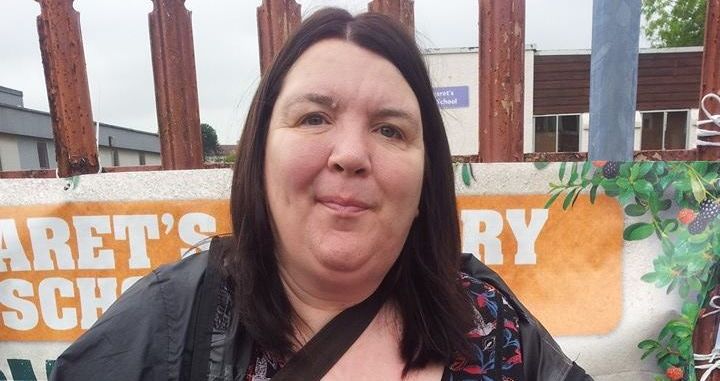by Sandra Webster
I used to have a career – I took pride in my work. However, nearly 16 years ago with the birth of my eldest son my world turned upside down. All new babies are a blessing and invariably change who we are, and our outlook on everything, but for a parent of a child with additional support needs you enter a strange new world of medical terminology and having to trust the care of your child to “experts”. My life has changed for the better; I have learned so much, but my experiences which are shared by many other carers have also been negative.
As the election looms, we carers are used to being applauded, patted on the back and told what a great job we do by prospective politicians, meanwhile essential services for performing our duties as carers are pared to the bone. Last year, we wondered how further cuts could be made, but there is always a way[1]. Cuts to services will impact on people with disabilities and those who care for them.

The Scottish Government are supporting “direct payments”. This means a local authority will give a sum of money to an individual to pay for their own services. The buzzword bingo phrases that accompany direct payments include “choice” and “tailor made services”. The reality on the ground though is that it is being used to cut services. Carers talk about “the Glasgow Model”. This model involves closing government-provided direct care schemes and day centres, and offering a menial amount of money to carers directly, which does not cover the cost of care. This is causing huge cuts in personal budgets being implemented around the rest of Scotland.
I hear more and more carers talk about the state of their health and that they can’t go on anymore. The cost of picking up the pieces when a carer can go no longer go on is much more than a reasonable amount to support ongoing care. I spoke to “Jane”. Her son has returned after his specialist service broke down. He has now come to live with her at home full time and has for the last nine months. Jane has received no respite in this time, despite the large saving she has made to the local authority.
“Life is difficult at the moment” she says. “ I have no time for myself anymore. I think I am beginning to forget who I am.”
That phrase strikes a chord with many of us.
Despite the false rhetoric of vast sums of money, of luxurious mobility cars, the truth is that cuts to the Department for Work and Pensions are impacting on people with disabilities and those who care for them. With the move to Personal Independence Payments, many people are losing their benefit and their carers their carers allowance. Not that carers allowance is a great deal it is a rate less than Job Seekers Allowance and is not paid to those carers on Employment and Support Allowance. I welcome the call for a living wage for carers which was part of the SSPs 2015 manifesto.
It’s a modest demand: a living wage – not just enough cash to continue to exist – and more importantly the recognition of the work carers do. We are the heartbeat of our society. The moral centre of a society where we all look after each other. Being a carer has made me a better person, more patient, able to see others point of view, kinder I hope. It has also made me more tired, with poorer health but I have met some of the loveliest folk in the world who I know always have my back. This friend and comrade solidarity is much more preferable to being patted on the back by politicians.
My final thought: caring is not just “women’s work” it is the responsibility of all of us. Most of us will be carers or cared for at some point in our lives. We ignore the situation many carers experience at our peril. We do not ask for much, just recognition that our roles are valued work and that the experience of caring should not only be brought up at election times. We are you.
Let’s stand together and fight the cuts that are impacting on all our lives. Let’s be prepared to do something for another person with unconditional love and expecting nothing in return. It can change the world for the better.
[1] – The Westminster Tories have abolished the employment and support allowance work-related activity component for new claimants from April 2017 and replaced it with Universal Credit. That would mean that social security support for people with a disability, impairment or serious health condition will reduce from £102.15 to £73.10.
This amounts to a cut of nearly £30 a week – close to £1,500 a year.

3 thoughts on “Who Cares For The Carers?”
My life to a T. gave up a career I loved to care for my children whom I love dearly. I have seen cut upon cut upon cut. I am getting older and doing more, which I will continue to do for the love of my children (now all in adulthood).
A phrase that resonates ” forgetting who I am”. I was asked in a meeting what I do for Hazel, “Who is she?” was my reply.
Carers Allowance also stops when you reach state pension age, another story to be told.
People need to take notice.
x
You have got this so right.
Hi Sandra,
Absolutely agree with everything you say here. Keep fighting for carers and your own family. I am so engrossed in the struggle in Cowal . All best X
Comments are closed.